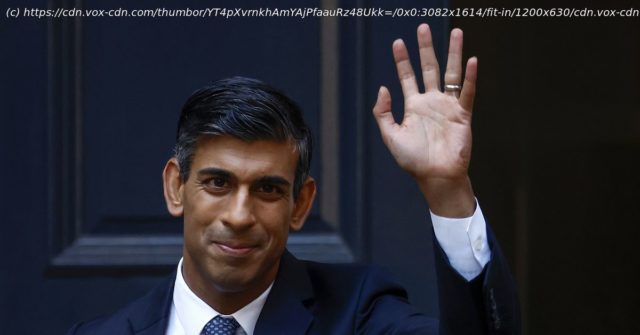The Conservative Party has picked its next leader. Now comes the hard part.
After a week — or, really, months — of tumult, the United Kingdom will have a new prime minister: Rishi Sunak.
When Sunak, the son of immigrants of Indian descent, officially becomes prime minister, in the next 24 hours, he will be Britain’s first prime minister of color. It’s a historic victory, and Conservatives are celebrating what they hope will be his steadying tenure in an incredibly difficult moment for Sunak’s party and country. In addition to the UK’s most dramatic currency crisis in recent memory, the country is also facing a cost-of-living crisis and staggering inflation that the Bank of England has yet to significantly curb.
Sunak, who served as chancellor of the exchequer (basically, finance minister) under former Prime Minister Boris Johnson, won the contest among his fellow Conservative Party members of Parliament (or MPs) after Johnson and Penny Mordaunt, his closest rivals, withdrew from the race. That means regular party members won’t vote, and Sunak is now the Tories’ new leader — their third in seven weeks.
Sunak has vowed to “fix our economy, unite our Party and deliver for our country.” Given the steep economic headwinds the UK is facing and the Conservative Party’s sagging popularity, whether he can deliver on that remains unclear.
The incredibly wealthy 42-year-old former Goldman Sachs banker criticized the policy proposals that sparked the currency crisis. He has emphasized the need to bring down public debt and advocated for cutting taxes — but only if it’s affordable. His next policy moves aren’t clear, but in remarks both public and private, “stability” has been his key message. How Sunak became the UK’s next prime minister — and how he might govern
In the last three months, UK politics have been incredibly chaotic. First, in July, Boris Johnson’s longtime ability to defy the political odds finally failed him. After a number of slow-burning scandals, Johnson’s fellow Conservative MPs lost faith in his leadership. Sunak, then Johnson’s finance minister, actually helped kick off the Cabinet rebellion that prompted Johnson’s resignation.
Sunak’s play, however, didn’t immediately pay off for him individually.
The race to replace Johnson culminated with a head-to-head campaign between Sunak and Foreign Secretary Liz Truss for the votes of regular Conservative Party members. While Sunak was preferred by his fellow members of Parliament during the earlier rounds of voting, Truss won the wider vote.
She governed for just over six weeks — during which time her administration introduced and then abandoned a tax plan that rocked British financial markets so thoroughly that ultimately she announced she would resign. That plan, dubbed Trussonomics, called for the biggest tax cuts in 50 years, aimed primarily at Britain’s wealthiest and corporations; a cost increase for national insurance; and other changes.
Now, after a weekend of jockeying within the party, Sunak is ascendant.
As Vox’s Jen Kirby previously noted, the former banker represents what the Tories may see as their future. The Conservative Party “has made an effort to diversify its representation in Parliament, and Sunak’s ascent is a testament to that.






